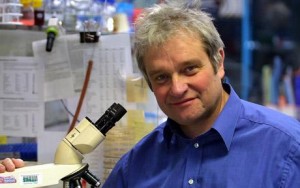The following funding opportunities have been announced. Please follow the links for more information.
British Council
The british Council, via the Netwon Fund invite applications for grants to run international research workshops for UK and Brazilian researchers, as part of Researcher Links. These workshops will allow early career researchers and a partner country to make international connections that could improve the quality of their research. Proposals should contribute to the development and social welfare of Brazil. Closing date: 4pm, 11/12/15
Department of Foreign Affairs and Trade, IE
The DFA invites applications for its reconciliation fund. The fund supports organisations involved in the reconciliation work between people on the island of Ireland and between Ireland and Britain. Support will focus on repairing issues which lead to division, conflict and barriers to a deeply reconciled and peaceful society; building a strong civil society that encompasses all communities, through the continued implementation of the agreements and promoting a rights-based society, political stability and respect for all. Award amount not specified. Closing date: 5pm, 11/03/16
Engineering and Physical Sciences Research Council
EPSRC invites expressions of interest for the near-term translation of regenerative medicine technologies for the treatment of civilian blast injuries fund. The fund aims to suport the academic community to propose approaches to accelerate the development of regenerative medicine technologies for the treatment of blast injuries, primarily in countries in which the civilian population is affected by landmines and other unexploded remnants of war. The total budget is worth £5million, which aims to fund one or two projects over a maximum period of five years. Expressions of interest due by 4pm, 27/11/15. Competition closing date: 24/03/16
EPSRC invites outline proposals for its call on intelligent technologies to support collaboratove care, which supports research that aims to develop reliable and intelligent technologies to support collaborative care in the community. Proposals should address the need for new technologies which can reliably and intelligently interpret multiple inputs from multiple sources and initiate actions as appropriate to support the self-management of chronic health conditions. A budget of £10million is available to fund between five and seven projects. Closing date for outline proposals: 05/01/16
European Commission
The EC invites tenders for media analysis services for the European Commission, which will provide high-quality expertise and support in undertaking in-depth media analysis on EU-related topics across different types of media. The evidence-based analysis will contribute to the development and implementation of a long-term communication and media relations strategy. Contracts are worth €10million over four years. Closing date: 4pm, 04/12/15
The Directorate-General for the Environment invites tenders for evaluation studies that support the evaluation of the zoos directive. Studies will assist the European Commission in the evaluation of the zoos directive by compiling, assessing and synthesising evidence for evaluation. Studies will examine relevance, effectiveness, efficiency and cohrence as well as its EU added value. The contract is worth between €200k and €250k over 15 months. Closing date: 4pm, 08/12/15
The EC invites applications for its H2020 Clean Sky 2 call for core partners (third call). Funding supports proposals from partnerships in the form of innovation actions. The call supports a number of topics and you are advised to look at the funder’s call pages for more specific information. Award amount not specified. Closing date: 5pm Brussels time, 04/02/16
The EC invites applications for its H2020 Competitive Low-Carbon Energy call. Funding supports proposals from partnerships in the form of innovation actions. The call supports a number of topics and you are advised to look at the funder’s call pages for more specific information. Each award will be in the region of €2million to €6million. Closing date: 5pm Brussels time, 16/02/16
European Foundation for the Improvement of Living and Working Conditions, EU
The European Foundation for the Improvement of Living and Working Conditions invites tenders for the provision of a research study on game-changing technologies in European manufacturing. The aim will be to develop five studies, each focusing on a different technology, which will take the form of exploratory case studies. Funding is approximately €120k over 15 months. Closing date: 07/12/15
Innovate UK
Registrations are invited for the innovation fund for preventing terrorism. The aim is to fund projects that develop new methods and / or technologies, which will protect vulnerable people from being drawn into terrorism. New methods and / or technologies will have the potential for replication nationally. Proposals should be in the region of £100k or less. Registration closes 25/11/15. Competition closing date: 12pm, 02/12/15
Natural England Environment Council
NERC invites applications for its follow-on fund pathfinder grants (up to £20K at 80% fEC), which are designed to realise the commercial potential of NERC-funded research, using a combination of complementary technical and commercial engagement work programmes. The award is open to researchers with current or past NERC funding and proposals must build on the outputs of the previous NERC-funded research activity. Closing date: Not specified
NERC invites outline proposals for its Changing Arctic Ocean: implication for marine biology and biogeochemistry research programme. £8.4million is available to fund up to four research projects that address how the change in the physical environment (ice and ocean) will affect the large-scale ecosystem structure and biogeochemical functioning of the Arctic Ocean, the potential major impacts and provide projections for future ecostsem services. Closing date: 4pm, 08/12/15
Wellcome Trust
Wellcome Trust invites applications for its seed awards in Humanities and Scocial Science to develop a novel idea to a position where they could be competitive for a larger award from the Wellcome Trust or another funder. They can support research in any field of the humanities and social sciences that can enrich our understanding of human and animal health. Awards will typically range from £25-£50k. Closing date: 15/01/16
Wellcome trust invites applications for its engagement fellowships, which aim to support and develop upcoming stars in public engagement with science. Applicants should have a strong track record of engaging the public with ideas around biomedical science and/or medical humanities, who want to makea step change in their careers. Closing date: 12/02/16
Wellcome Trust invites applications for its capital awards for public engagement and medical history. The aim is to build or redevelop projects for public engagement with science. Awards will generally be upwards or £200k. Closing date: 13/05/16
If you are interested in submitting to any of the above calls you must contact RKEO with adequate notice before the deadline.
Please note that some funding bodies specify a time for submission as well as a date. Please confirm this with your RKEO Funding Development Officer
You can set up your own personalised alerts on Research Professional. If you need help setting these up, just ask your School’s/Faculty’s Funding Development Officer in RKEO or view the recent blog post here.
If thinking of applying, why not add notification of your interest on Research Professional’s record of the bid so that BU colleagues can see your intention to bid and contact you to collaborate.
 The Engineering and Physical Sciences Research Council put out its 2016-20 delivery plan to consultation at the end of 2015. On 2nd February EPSRC published an update to the draft plan, which sets out four areas that it intends to focus on over the next five years:
The Engineering and Physical Sciences Research Council put out its 2016-20 delivery plan to consultation at the end of 2015. On 2nd February EPSRC published an update to the draft plan, which sets out four areas that it intends to focus on over the next five years:





















 Dr. Ashraf cited on ‘Modest Fashion’ in The Guardian
Dr. Ashraf cited on ‘Modest Fashion’ in The Guardian NIHR-funded research launches website
NIHR-funded research launches website Academics write for newspaper in Nepal
Academics write for newspaper in Nepal New paper published on disability in women & girls
New paper published on disability in women & girls Global Consortium for Public Health Research 2025
Global Consortium for Public Health Research 2025 MSCA Postdoctoral Fellowships 2025 Call
MSCA Postdoctoral Fellowships 2025 Call ERC Advanced Grant 2025 Webinar
ERC Advanced Grant 2025 Webinar Horizon Europe Work Programme 2025 Published
Horizon Europe Work Programme 2025 Published Horizon Europe 2025 Work Programme pre-Published
Horizon Europe 2025 Work Programme pre-Published Update on UKRO services
Update on UKRO services European research project exploring use of ‘virtual twins’ to better manage metabolic associated fatty liver disease
European research project exploring use of ‘virtual twins’ to better manage metabolic associated fatty liver disease